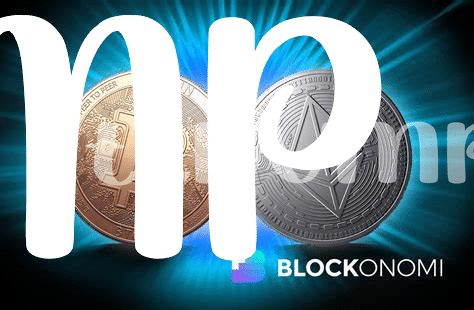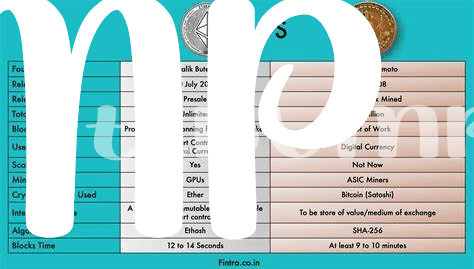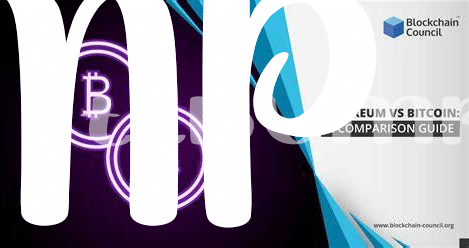What Is Ethereum? a Beginner’s Guide 🌍

Imagine a huge, bustling marketplace where instead of buying and selling things like fruits or clothes, people exchange digital money and even sign virtual contracts. This is Ethereum, a special kind of digital platform that uses a technology called blockchain—think of it as an unbreakable, super-secure diary that keeps track of everything happening in this marketplace. What makes Ethereum stand out is its ability to run “smart contracts,” which are like traditional contracts but are automatic, digital, and can’t be messed with once they’re made. This means that two people can agree on something, like renting a house or paying for a service, and the contract will make sure everything happens as agreed, without needing a middle man like a lawyer or a bank. It’s a bit like setting up a super advanced, automatic to-do list that everyone trusts completely. Here’s a quick glance at what Ethereum offers:
| Feature | Description |
|---|---|
| Decentralized Platform | A network that’s not controlled by any single person or entity, offering a democratic, secure space for transactions and agreements. |
| Blockchain Technology | Underlies Ethereum, ensuring that all transactions and smart contracts are recorded permanently and transparently. |
| Smart Contracts | Automated contracts that execute themselves when predefined conditions are met, simplifying complex processes and transactions. |
Decoding Smart Contracts: How Do They Work? 🔍
Picture a world where agreements and deals can execute themselves without needing a middle person to say “yes” or “no”. That’s what smart contracts on Ethereum do. Imagine you and a friend bet $10 on the weather tomorrow. Instead of waiting to see if you were right and then having your friend hand you the cash, a smart contract would take care of this. It holds onto the $10 from both sides and automatically gives it to the winner when the result is clear – all without asking anyone to judge or make the call. This isn’t just limited to bets; it could be used for anything from renting a house to getting paid for work. The beauty of smart contracts is that they’re like trusty robots on the blockchain: once the conditions are met, they follow through with the deal, making processes faster and less expensive, and importantly, open to anyone with internet access. This has the potential to really shake things up in how we deal with each other financially. To dive deeper into how emerging technologies are influencing the landscape, including the role of privacy in transactions, a thorough exploration can be found at https://wikicrypto.news/sanctions-and-cryptocurrencies-a-tale-of-two-coins.
Inclusive Finance: Breaking down the Barriers 💰

Imagine living in a world where everyone has the same access to money management tools, no matter where they are or how much they earn. That’s the dream of inclusive finance, a movement aiming to make financial services available to all, especially those traditionally left out: the underbanked and the unbanked. These folks often face real hurdles, from high fees to a lack of nearby banking facilities, which keep them from getting the financial tools many of us take for granted like savings accounts or loans. By leveling the financial playing field, inclusive finance opens up a world of opportunities for everyone, making it easier to start businesses, invest in education, and save for the future.
But how do we dismantle these barriers? The secret sauce could be technology. The internet started this revolution, and now, mobile money and digital banking are pushing it even further, making basic banking services accessible right from a mobile phone. And there’s another exciting frontier: innovations like blockchain and smart contracts promise to make financial transactions cheaper, faster, and more transparent than ever before. With these tools, we’re not just dreaming of a world where finance is truly for everyone — we’re building it.
Smart Contracts: a Catalyst for Financial Inclusion? ✨

Imagine a world where financial services are accessible to everyone, not just those with bank accounts or those living in cities with banks and ATMs. That’s the potential power of smart contracts. These are like promises set in digital stone, agreements that run on blockchain technology, which Ethereum makes very user-friendly. They don’t care who you are or where you’re from; if the conditions of the contract are met, they will execute the agreed actions. This could be a game changer for people in remote areas or those who, for various reasons, have been left out of the traditional banking system. By automating trust and eliminating costly intermediaries, smart contracts can lower the entry barrier, making it easier and cheaper for anyone to access financial services. Whether it’s saving, borrowing, or investing, the possibilities are vast. For a deeper dive into the potential shifts and considerations in adopting these technologies, especially concerning privacy in the bitcoin network: enhancements and challenges versus ethereum.
Real-world Applications: Success Stories and Hurdles 🚀
When we look at how smart contracts on Ethereum have been used in the real world, the stories are as diverse as they are inspiring. Imagine a farmer in a remote part of the world getting insurance for crops against bad weather without having to go through heaps of paperwork or a small business owner in a developing country accessing loans quickly, without the daunting interest rates set by traditional banks. These are not just stories; they’re realities made possible by smart contracts which make transactions faster, cheaper, and more accessible to everyone, no matter where they are. However, this journey hasn’t been without its bumps. Issues like technical glitches, the steep learning curve for non-tech users, and the environmental concerns associated with computing power needed have shown there’s still a way to go. But, the promise for a more inclusive financial world keeps us all moving forward, looking for solutions to these hurdles every day. Here’s a glimpse into the success and challenges faced:
| Successes | Challenges |
|---|---|
| Enabled micro-insurances and loans | Technical glitches and errors |
| Facilitated fast and secure transactions | High energy consumption of blockchain technology |
| Lowered transaction costs | Complexity for average users |
Future Prospects: Where Do We Go from Here? 🌟

As we stand on the brink of a new chapter in the story of finance, powered by Ethereum and its smart contracts, the future appears promising and full of possibilities 🌟. Imagine a world where access to financial services is universal, barriers are dismantled, and people everywhere can manage their money safely and efficiently. That’s the vision Ethereum’s smart contracts aim to realize. They could transform everything from how we borrow and lend money to the way we save and invest, making these processes more transparent, faster, and less costly. However, this journey also presents hurdles, such as ensuring these technologies are accessible to everyone, regardless of their tech-savviness or where they live. Education and infrastructure development will be key, as will navigating the complex regulatory landscapes. Moreover, considering the the impact of bitcoin on global remittance flows versus ethereum, it is clear that the route to widespread adoption won’t be without its challenges. Yet, the potential benefits for inclusive finance are too significant to ignore. As we look forward, it’s crucial to continue exploring, innovating, and striving to make finance more inclusive for all, leveraging the power of smart contracts on Ethereum to build a more equitable financial landscape.
